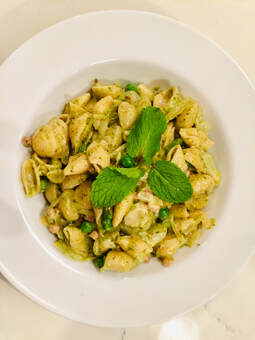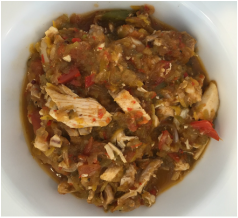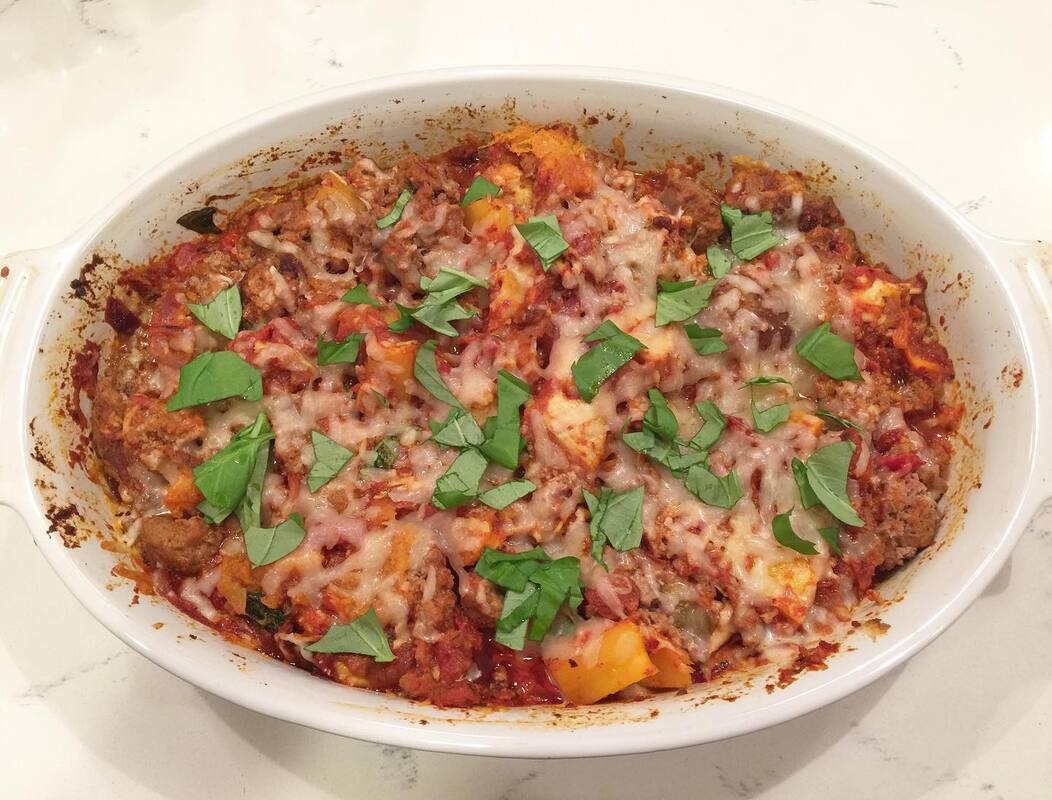|
As a Certified Professional Coach, I’m committed to facilitating both personal growth and systemic transformation through helping individuals and companies reframe their stories in order to reclaim their narratives—transitioning reality and transforming circumstances in order to thrive!
What are the stories you are telling about yourself and your experience? Those will become your reality. Choose carefully the narratives you use to define yourself and your life’s work. Choose to have life happen FOR you instead of TO you. Focus on how you want to feel, instead of what you think will make you happy. Pay attention to how your words make you feel. Choose to create a rich, meaningful life with the thoughts you think and the words you choose to express them—these will create your brand, both internally and externally. You choose what defines you. And, don’t be afraid to do it differently than everyone else! After all, that’s what makes you, well, YOU. Here's a quick branding exercise in order to create clarity and purpose around your own personal brand. These findings will become the foundation of your personal brand positioning statement, even your own manifesto, and personal dynamism statement! 15 Question Personal Branding Exercise: 1.) Who are you as a person in one sentence? 2.) Who are you as a person in three words? 3.) What do you offer the world? 4.) With whom do you most connect? (Who is your target audience?) 5.) What’s distinctive about you? 6.) What’s your personality? How do you make people feel? 7.) What are your overall objectives? 8.) Is there a story that is unique to you? 9.) If you were an object, what would it be? And why? 10.) If you were an animal, which one would it be? What does this animal symbolize for you? 11.) How do your colleagues see you today? What are three words they would use to describe you? 12.) How do you want your image to be perceived in two years? 13.) How do you want people to feel after spending time with you? 14.) What is your longterm vision for your life? 15.) What do you want people to say about you at the end of your life? Next, we’ll move on to 5 POWERFUL ACTION STEPS: Action Step #1: Weave the answers on the above questions into a written brand narrative. What differentiates you? What sets you apart? What can you uniquely bring forth into the world? Go big on this one. Overwrite it, because you can always edit down. Be authentic, memorable, and write to your audience—and pay attention to tone. This is where you get to reframe your story and reclaim your narrative. This should be positive and empowering. Keep at it till you have a concise narrative (no longer than one page) that clearly states your personal narrative statement. This will now be the foundation of all of your personal branding. Action Step #2: Condense the above down and craft it in actionable and dynamic terms in order to create your own personal brand manifesto in one paragraph. In the corporate world, a brand manifesto describes why your organization exists, its purpose and core values, and why people should care about your brand—and is highly emotionally charged, which is what differentiates it from a stereotypical mission statement. It should be bold, plant your flag, and inspire emotion. Now, apply this to YOU. Write in terms of your purpose. Think, “I believe…” statements. A strong manifesto will ignite not only emotions but actions. As Simon Sinek famously said, “People don’t buy what you do; they buy why you do it. If you talk about what you believe, you will attract those who believe what you believe.” Think Nike saying: “Purpose Moves Us. Our purpose is to unite the world through sport to create a healthy planet, active communities and an equal playing field for all.” Or Starbucks’s: “Our mission: To inspire and nurture the human spirit – one person, one cup and one neighborhood at a time.” This finished statement can be internal or external (or both!). Your manifesto can be made public and used on your website and/or LinkedIn and other social platforms, if appropriate, but you may prefer to simply keep it at your desk and read it daily to remind you who you are and what you stand for. Action Step #3: Condense the written personal narrative into a one sentence personal branding statement. This will speak to your specific expertise and can live on your corporate bio page, LinkedIn page and across other social platforms—remember to keep it consistent and remember to keep content “on brand” (your online reputation, online identity and social media is an essential part of personal branding—and lives forever)! This can also serve as your own personal elevator pitch for networking. A personal branding statement, as we say in the ad world, has legs! Action Step #4: Craft your own personal dynamism statement. “I am…” Choose at least three modifiers. This one isn’t for public consumption, it’s to remind you who you truly are. A sort of affirmation, if you will. For instance, one of my executive coaching clients crafted: “I am compassionate, driven and strong!” This statement has indeed driven her—to start her own company and revision her purpose. Action Step #5: Perform an online and social media audit. Now that you’ve defined your brand, make sure that your online identify is in alignment. You can be sure that your potential clients, customers and employers are going to scour the internet looking for clues as to who you really are; make sure that your online identity matches the real world you and the brand you’ve built for yourself. So do it: Google yourself. Read the results thorough the eyes of your ideal client; does it match the authentic you and the careful branding work you’ve just done? If not, update, edit and delete till it does. And don’t forget social media platforms: Twitter, Facebook, LinkedIn, Instagram--anything that is publicly viewable. Once you feel good about the public you, make sure that any content you produce moving forward (not only for your company but personal tweets and posts as well) is in alignment with your personal brand, and your purpose. Keep yourself honest; a good rule of thumb is: If in doubt, don’t. Discretion truly is the better part of valor. Use the above deliverables to define your brand and fuel your purpose, both in your personal and professional life. Become your own best advocate. Know your purpose, speak your purpose, so you can LIVE your purpose. Remember: Reframe your story in order to reclaim your narrative. You choose what defines you. Create a personal brand that is rich with meaning and authenticity. And don’t forget to have fun!
0 Comments
There have been a lot of books written on happiness, but not many about joy. Maybe because happy is so shiny, so pretty—the cheerleader on the front row who gets all the attention, while joy is deeper, subtler, more elusive—the Mona Lisa of emotions.
Joy comes softly and stays. Happiness rushes in like a wind, fleeting, slamming the door behind her in her wake. Joy is not as sexy as happiness—if happiness is a temperamental thoroughbred, joy is a steady, plodding oxen making its way unerringly back to the barn. So given the choice (everything, and I mean everything! is a choice), I choose joy. Joy is about balance. Keeping mind, body and spirit nourished, and in alignment with your highest life path is a tricky balancing act, but one well worth it. Living life with joy is like being in love. You consciously choose to look at the world through a different lens. You are in a state of being in love and this gives you the ability to quite literally view everyone and everything through the gorgeous haze of love. You have greater compassion. It’s all perception. Living without joy is like being in a constant state of depression. You look at the world through a dark and heavy haze characterized by consistent and persistent negative thoughts. We are all loved and valuable. We are all sparks of God/Universe/Spirit/Love, whatever signifier works for you. What are your God-spark words? Consider all of the following words. Sort them into the following 3 categories: Positive Charge, Neutral, Negative Charge, and then get curious about WHY they hold these charges for you. There’s a message there, and it’s an opportunity to own your strengths and forgive your weaknesses: Vital, Curious, Truthful, Honest, Empathetic, Smart, Valuable, Wonderful Lover, Wonderful Parent, Healthy, Balanced, Bright, In Flow, Fascinated, Sensual, Strong, Joyful, Patient, Committed, Passionate, Exciting, Friend, Adventurous, Beautiful, Compassionate, Brilliant, Wonderful, Lovely, Fascinating, Energetic. Keep in mind that every thought is a choice contributing positively or negatively to our experience of joy. Every moment is an echo. Every eventuality is a passage manifested. Life is not a series of random events. Even though it can certainly seem so at times. I remember the first time I became aware of the magical elements illuminating joy and transcending the world I could initially only perceive with my five senses. I was seven years old, traipsing on my own through the woods of Lake Cumberland, Kentucky. And all of a sudden I felt everything. Felt golden. Felt the light coming though the trees also coming through me. It was epiphany. It was Divine. It was Magic. I felt a part of everything, all at once. I felt transported. Joyful. Similar experiences have inflected my days ever since, and I’m profoundly grateful, as I’m never truly alone. Life can and should be magical. Practical magic, indeed. But magical nonetheless. Anything is possible. The kinder and wiser our gaze, the broader and more lovely the sweep of our imagination….and manifestation. Wishing you all your full portion of joy. XOKate  I invented this recipe the other night with leftovers (as one does with quarantine cooking—I cook in order of which produce needs to be used first) and it’s now a household favorite—like eating spring in a bowl! This is an easy quick dinner, particularly once you have everything prepped—about 15 - 20 min. of cooking time. Note: We try to stay away from wheat, so we used “Banza” shell pasta (made from chickpeas—2x the protein, 3x the fiber, and 30% fewer net carbs of regular pasta), but feel free to substitute the pasta of your choice. Serves 4, depending on how hungry you are! Ingredients: 1 box Banza shell pasta Good olive oil, a lot 1 sm. yellow onion, thinly sliced 5 cloves slivered garlic 1 tsp. crushed garlic 1 bulb fennel, topped and tailed and thinly sliced 4 oz. cubed pancetta 1 bunch asparagus 1 c. fresh English peas ⅓ c. simple basil pesto sauce (if you use store bought, make sure it’s made with olive oil and not canola or safflower oil) ½ lemon, juiced ½ c. heavy cream ¼ c. grated Parmigiano Reggiano 4 springs fresh mint Salt, to taste Pepper, to taste Crushed red pepper, to taste Instructions: Fill a large pot with water, salt generously and bring to a rolling boil. Once boiling, add pasta and cook according to instructions (I use 10 minutes for the Banza shell pasta). When timer dings, drain immediately and shock with cold water to stop cooking, then add back to the pot and set on the back burner. Meanwhile, heat 1 T. olive oil in a large, heavy skillet then add one small yellow onion, thinly sliced, stir. After about a minute, add the fennel and slivered garlic. Continue to stir till all is wilted and turning a lovely golden color. Next, add the cubed pancetta to the pan, stir. After about a minute, add the asparagus and peas, stir and season all with salt, pepper and crushed red pepper flakes. Cook for about 7 more minutes on medium heat, stirring often, adding more olive oil. Then, add the pesto, lemon juice, and Parmigiano Reggiano, stir. After about a minute, turn heat to low and add in the heavy cream, stir and taste, adjusting seasoning if needed. Lastly, add all ingredients of the skillet to the pot of drained pasta and place on your low-heat burner. Stir well and heat through, adjusting if needed (more olive oil, cheese, splash more cream, etc.). Remove and serve immediately, garnishing with fresh mint. Enjoy! We've been doing our bit to help fight COVID-19 and sheltering-in-place. That means a LOT of cooking at home. I've been cooking though all of my favorite recipes and developing new ones as well to share. This is my absolute favorite new recipe, and, like most interesting recipes, was discovered by accident (dressing up boring butternut squash that HAD to be roasted—there was just so much of it!).
Squash: First, I roasted two large butternut squash. Here’s the easiest way to do it (and the tastiest since you roast them skin on): Wash the squash then slice down the middle and scoop out the seeds. Drizzle the four squash halves with olive oil and season with salt and pepper. Place, cut sides down, on cookie sheets, add water to the bottom of the pan, and put into a preheated 375 degree oven. Roast for 45 - 50 min. or till you can easily pierce the squash with a fork. Marinara: Meanwhile, let’s get your sauce going. If you’re short on time (or simply don’t feel like it), feel free to use a good quality jarred marinara. Otherwise, take 1 28-oz. can of whole San Marzano tomatoes and get to work! To make this Italian old-school style, pour the tomatoes into a large bowl and break them up with your hands or a potato masher. Make sure you get all the juices out of the can. In a large skillet, heat ¼ c. good olive oil, then add 6-7 sliced garlic cloves. When garlic is sizzling, add the tomatoes and juice (add water if feel you need a bit more juice). Then add crushed red pepper flakes, dried oregano and salt, stir. Now, here are two tricks—place an entire basil sprig on the sauce and let it wilt, simmer with sauce till sauce is thickened (about 15 min.). And, add just a bit of fish sauce! Remove basil and discard and season to taste: I like everything very spicy so, in addition to adjusting the salt and pepper, I add: cumin, smoked paprika, cayenne pepper and a bit of dried thyme. Meatballs: While the sauce is hanging out at a very slow simmer, start your meatballs. In a large bowl, combine 1 lb. grass-fed organic ground beef. 2 eggs, ¼ c. milk (I use goat milk), 2 T. arrowroot powder (a gluten-free substitute for breadcrumbs), garlic (about 3 minced cloves), minced jalapeno (one), minced yellow onion (one small or ½ large), and fresh parsley (fine to sub dried). Mix all with your hands then form into large balls. Heat olive oil in a large skillet and add the large meatballs to the sizzling oil. Get a slight crust on all sides. Assemble: Now, to bring it all together! Take your squash out of the oven, scoop out the flesh and place in bite sized chunks in a large oven-proof casserole dish. Drizzle with olive oil and season with salt and pepper. Next, pour your homemade or jarred marinara over top. Then, add your meatballs. Take a wooden spatula and loosely break up the meatballs and mix with the squash and marinara. Top with a generous portion of shredded organic mozzarella and pop back into the oven at 350 degrees for ten minutes. Serve with a generous portion of torn basil and grated Parmigiano-Reggiano. Insanely good with a glass of good Chianti. Enjoy! Ingredient List: Two large butternut squash Good olive oil Kosher salt Cracked black pepper 1 lb. grass-fed organic ground beef 2 eggs ¼ c. milk 2 T. arrowroot powder (I use instead of breadcrumbs) Garlic cloves Jalapeno Yellow onion Fresh parsley Dried oregano Smoked paprika Cayenne pepper Cumin Dried thyme 1 jar organic marinara sauce OR *make your own! Shredded organic mozzarella Grated Parmigiano-Reggiano The need to assist people affected by the pandemic grows greater every day. Like you, I am most concerned with those who are sick, disabled, quarantined without pay, elderly, food-insecure, housing-insecure or homeless, and those who are undocumented. Not to mention those outside our borders: most specifically refugees and those without access to clean water (to that end, I am a strong supporter of WaterSchool).
 Exercise boosts the immune system Exercise boosts the immune system We're in a new reality with COVID-19, and while we all know to wash our hands, wear a mask, and practice social distancing, what else can you do proactively to pump up your immune system during this time? I've aggregated the best tips I've read and included them from you below (from a variety of sources including Dr. Christian Barney, Dr. Joseph Mercola, and epidemiologists whose names I can no longer recall as I've now read so many articles and blogs! Captions, and any errors, are mine): + You're Sweet Enough Already: Avoid excess sugar and processed foods as these can create inflammation in the body and suppress your immune system’s ability to fight off potential infections. Focus on vegetables and clean proteins. + Sweet Dreams, Darling: Try to consistently get 8 hours of quality sleep to allow your body proper time for recovery and optimal immune function + Move It, Baby! Exercise helps boost the function of the immune system which will help your naturally fight off any potential infection. + Nature, Baby! Time in nature can not only restore one's soul, but can also offer protective benefits when it comes to reducing stress and bolstering one's immune system. + Chill Out, Cutie-pie! Stress is one of the biggest things that weakens your immune system. Using things like meditation or anything else that helps you de-stress can significantly increase the function of your immune system Beyond these basic hygiene and lifestyle recommendations you can also use the following things to naturally boost your immune system and make your body better able to fight off any ‘bugs’, including viruses. Here are the top performers: - Zinc: Supports "effective function and proliferation of various immune cells," lowering mortality in the elderly by 27%. Also keep zinc lozenges on hand at the first sign of a sore throat. - Vitamin C supplementation: A LOT. I like time-released 1000 mg per day. I take 2 with each meal, for a total of 6000 per day. Increase further if feeling under the weather (see: Dr. Marik's Sepsis Treatment Protocol). - Vitamin D supplementation: 5000 IUDs per day (preferably in combination with K2). - Beta-glucan: Reduces severity of influenza infection severity and lowers influenza mortality in animal studies. - N-acetylcysteine: Encourages glutathione production, thins mucus, lowers your chances of influenza infection and reduces your risk of developing severe bronchitis. - Elderberry extract: Known to shorten influenza duration by two to four days and reduce the severity of the flu. - Spirulina: Reduces severity of influenza infection and lowers influenza mortality in animal studies. In a human trial, spirulina significantly lowered the viral load in patients with HIV infection. - Moringa: This superfood supplement is high in antioxidants and anti-inflammatory compounds that can help treat cancers, prevent disease, and protect your brain. - Glucosamine: Upregulates mitochondrial antiviral-signaling protein (MAVS), reduces severity of influenza infection severity and lowers influenza mortality in animal studies. - Lipoic acid: Helps boost type 1 interferon response. - Quercetin: A powerful immune booster and broad-spectrum antiviral. If you can only afford a few or you hate taking supplements, based on my research (NOTE: I am not a doctor), I recommend prioritizing Vitamin C, Vitamin D, Zinc, Quercetin, and Beta-glucan. It's also a good idea to have an oral thermometer as well as a fingertip pulse oximeter (blood oxygen saturation monitor) at home so that you can monitor both if you do start to feel sick. If you have a fever, cough and difficulty breathing, seek medical attention and call in advance. Follow the directions of your local health authority. Additional Resources: Harvard Medical Center: Coronavirus Resource Center Center for Disease Control World Health Organization To your health! Let's all love and support one another through these trying times. XOXOKate I've been thinking a lot about the concept of joy lately. Living life with joy is like being in love. You consciously choose to look at the world through a different lens. You are in a state of being in love and this gives you the ability to quite literally view everyone and everything through the gorgeous haze of love. You have greater compassion. It’s all perception.
 When the world is in upheaval, and the daily news brings a fresh rash of sorrow and outrage, it can be tough to remain centered, to still claim joy as our birthright. Add to that heartbreak over the abrupt ending of a loving relationship, and it’s a pretty toxic cocktail. So, today, I decided to make a list of the gifts of a broken heart. Turns out, there are many. These gifts have revealed themselves to me not only in my own past heartbreak, but in my work with all of you. Thank you for being so generous in sharing your stories and trusting me to guide you through the process. 1.) Love. Big L-love. I feel loved and held and supported by God/Universe/Source. I trust the process. I trust that in the end love and joy will win. Not just in my little life, but for all of us. 2.) Community. I feel the love and sisterhood and brotherhood of all of you amazing people. You people freaking rock. My friends have been patient and amazing, acquaintances stop to give me a hug, strangers email me and share their own stories—a generous trust. 3.) Laughter. When I wasn't crying, I found most things absolutely absurd. Heartbreak has a way of putting things in perspective. And I chortle over my own foibles daily. 4.) Purpose. We all have one. We are all necessary to heal this world. And heartbreak has a way of focusing intention and marshaling resolve. Think of it this way: every soul born is an octave of God’s voice. Each voice has something unique to add to the chorus. And it is when we all express our unique talents and lift our voices in love that the universe is in harmony. Don’t ever doubt for a second the impact you can have on this world. 5.) Clarity. I now know EXACTLY what I want. And that’s a tremendous gift. The bar has been raised high and I’m grateful to my erstwhile love for that. 6.) Perspective. This too shall pass. I’m a speck in this immense, gorgeous universe. An important speck, as are you, but a speck. “For small creatures such as we the vastness is bearable only through love.” —Carl Sagan. And this heartbreak? I will look back at it and be grateful for its lessons. I don’t feel that way now, and doubt I will tomorrow, but I trust that one day I will be humbled by its transformative power. 7.) Resilience. We have all been kicked in the teeth at one point or another. And somehow, most of us, most of the time, get back up. And then go to do something fabulous, like raise a kid, or start a company or a foundation, or write a book, or bake a cake. "It is not the critic who counts; not the man who points out how the strong man stumbles, or where the doer of deeds could have done them better. The credit belongs to the man who is actually in the arena, whose face is marred by dust and sweat and blood; who strives valiantly; who errs, who comes short again and again, because there is no effort without error and shortcoming; but who does actually strive to do the deeds; who knows great enthusiasms, the great devotions; who spends himself in a worthy cause; who at the best knows in the end the triumph of high achievement, and who at the worst, if he fails, at least fails while daring greatly, so that his place shall never be with those cold and timid souls who neither know victory nor defeat.” —Theodore Roosevelt 8.) Transformation. One of my dearest friends, fellow coach Susan Leahy, says “Hold your conceptions of people lightly so as to leave them room to surprise you.” So wise, so true. Just as flame forges metal and pressure creates diamonds out of dust, so does adversity transform the human spirit. It’s a gorgeous alchemy. And not only am I going through a transformation, but I’ve been able to step back and allow other people room to surprise me. And, by the way, difficult people are our best teachers. Pain is an incredible learning tool. If someone is causing me pain, I’ve learned to stop and get curious. What’s my narrative around it? Is it true? Can I reframe it into something that is more generous and compassionate? That feels better to me? I’m committed to being a victor, not a victim. I ask myself: What did I learn from this person? How have they contributed to my growth? What’s my takeaway? What do I need to release? What do I need to bless and manifest? Case in point: My mother. I’ve had a very complicated and conflicted relationship with my mother over the years. And I am grateful that, through grace and therapy and what measure of maturity I’ve achieved, I’ve gotten to the place where I’m able to hold my conception of her lightly because she HAS surprised me. She has stepped up and been wise and wonderful and altogether lovely. As she said to me the other day, “Sorrow stretches out places for joy in your heart.” And joy is filling me even now for her wisdom and kindness. Thank you. Love you. Grateful for you. XOKate As a life coach and as a single woman, I am often asked this question: What is the one thing I can do to improve my dating life and relationships? I usually ask a question in return: What do you think it is? The answers range from be more present to be more patient, and while all of those are wonderful elements that contribute to a happy and healthy relationship, the answer I’m looking for is: Follow Through. Do what you say you are going to do. If I had to name one reason I see so many fledgling relationships fail, it is this: lack of follow through. This is, of course, assuming that the baseline for any dating relationship has been achieved: mutual attraction, affection, and respect. If those magical and alchemistic elements are present then, my friend, the most important thing you can do is to follow through. Call when you say you’re going to call. Text when you say you’re going to text. Communicate about expectations. Be in integrity, be in alignment, deliver on promises. And pay attention to whether your new love interest is doing the same. The beginning of any relationship sets a critical tone for its continuance. We teach people how to treat us. If you’re okay with being put “on the back burner,” then fine, it’s okay that he didn’t call, once again, when he said he was going to do so. If you’re okay with being last on her list, then fine, it’s okay that she, once again, cancelled your lunch at the last second. Relationships should feel good, should add value to one another’s life, not detract. The next time you’re newly dating someone, if you observe a lack of follow through, stop and get curious. How do you feel about this? Do you still feel respected/cherished by this person? Or last on their list? If an explanation or apology is offered, does it make sense to you, or do you feel manipulated? Pay attention to your gut instinct. We ignore our intuition at our peril. If you are showing up with integrity and alignment in your relationships, then it’s reasonable and healthy to expect the same respect in return. I’m not advocating being inflexible or showcasing a lack of compassion—people make mistakes, life happens, things can get messy and tough. But, if you’re seeing a repeated pattern in someone’s behavior toward you, and they aren’t owning that behavior and making amends, then it might be time to gently take your leave. Think of it this way: Would you stay in a business relationship or partnership with someone who habitually didn’t follow through on what they said they were going to do? Successful executives treat their clients, partners and vendors with courtesy and respect. Is your love interest worth any less? Or, to put the shoe on the other foot, are you worth any less? You are valuable; you are worth being made a priority. Seek and celebrate the best in those around you, appreciate the beauty that is this life, and delight will surely find you. And when it does, do your bit and follow through.  A ninth-generation Kentuckian, I grew up eating Burgoo (“BUR-goo”)—the infamous spicy stew known as the Bluegrass State’s Official Dish and a Kentucky crowd-pleaser for more than 150 years. And I sure start to crave it around the first Saturday in May. So today, in honor of the Kentucky Derby, I created a healthy Paleo-version of the infamous Kentucky Burgoo! Healthy Kentucky Derby Burgoo Serves a heap of folks a little, or a few folks a lot Ingredients: 2 red bell peppers, seeded 2 yellow bell peppers, seeded 2 green bell peppers, seeded 2 jalapenos, seeded 2 Poblano peppers, seeded 2 large tomatoes 1 large white or yellow onion 4 garlic cloves, minced 1 chicken, roasted and shredded 1 package, Andouille chicken sausages (precooked), cubed 2 T. olive oil Jamaican jerk seasoning, to taste Pink Himalayan sea salt, to taste Cracked black pepper, to taste Cayenne pepper, to taste Apple Cider Vinegar, to taste Worcestershire Sauce, to taste Instructions: Wash and rough chop all veggies and pulse in batches in a food processor. (I used to painstakingly chop them all by hand till my Southern mother—who is a brilliant chef and 5-star Innkeeper asked me why in the world didn’t I use a food processor?) Heat all veggies in a large wok skillet or dutch oven in 2 T. olive oil. Meanwhile, shred the chicken and cube the chicken sausage and stir into the veggie mixture. Simmer on low for 15 min. then begin to add your seasonings. I’m a big believer in seasoning to taste. I love things salty and spicy, you may not. Plus, it’s the best way I know to truly teach yourself to cook and to educate your palate. Have fun, play and experiment! Simmer for 15 minutes more, taste again and adjust seasonings as desired. Note: If you prefer more of a souplike consistency, feel free to thin with chicken broth. Serve with piping hot cornbread. Mint Julep, optional. Happy Derby, y’all! Enjoy! |
AuthorCertified Professional Coach Kate Buckley is committed to facilitating personal growth and systemic transformation. An intuitive and deep listener, she specializes in helping both individuals and organizations reframe their stories in order to reclaim their life—creating meaningful strategies to transform circumstances in order to thrive! Archives
September 2020
Categories
All
|



 RSS Feed
RSS Feed